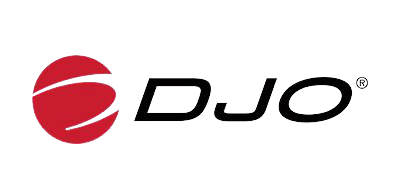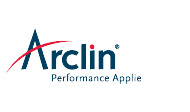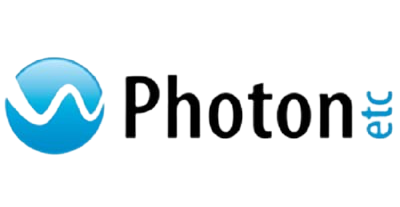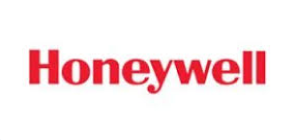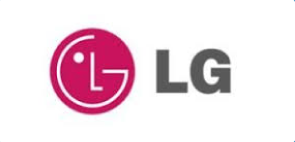Eternity Insights has published a new study on Global Synthetic Rubber Market focusing on key segments By Type (Styrene-Butadiene Rubber (SBR), Polybutadiene Rubber (BR), Styrene Block Copolymer (SBC), Ethylene-Propylene-Diene Rubber (EPDM), Butyl Rubber (IIR), Acrylonitrile-Butadiene Rubber (NBR)), By Application (Tire, Automotive (Non-Tire), Footwear, Industrial Goods, Consumer Goods, Textile, Others), and by region. This deep dive research report highlights the market and competitive intelligence across the key segments of the market. The report also considers the impact of COVID-19 on the global Synthetic Rubber Market.
The report considers 2018-2020 as historic period, 2021 as base year, and 2022-2028 as forecast period. The report includes quantitative analysis of the market supported by the market drivers, challenges, and trends to accurately map the market scenario and competition. Moreover, key insights related to market having direct impact on the market will also be covered.
Synthetic Rubber Market report is based on robust research methodology designed using blend of research approaches developed using secondary/desk research and validated through primary research and expert insights. Eternity Insights also uses paid databases such as FACIVA, Hoovers, and other bench-marking and forecasting tools to provide accurate statistical analysis of supply and demand trends.
To learn more about this report
To learn more about this report
Geographically, the market is categorized in to five regions as North America, Europe, Asia Pacific, Latin America, and the Middle East and Africa. North America region dominates the global Synthetic Rubber market in terms of demand generation. The Synthetic Rubber market in Asia Pacific region is expected to grow at significantly high growth rate. The regional market is further sub-segmented and analyzed at granular level across key countries. The report will include market size and forecast for Synthetic Rubber market for below listed coun-tries across each region.
North America (U.S. and Canada), Europe (Germany, France, Italy, UK, Spain, and Rest of Europe), Asia Pacific (China, India, Japan, Australia, and Rest of Asia Pacific region); Latin America (Brazil, Mexico, and rest of the Latin America); Middle East and Africa (GCC, South Africa, and Rest of the Middle East and Africa).
To learn more about this report
The global Synthetic Rubber market analysis report covers detailed analysis of competitive scenario across globe. The report includes profiles of leading players covering below details
| Report Attributes | Details |
| The market size value in 2021 | USD XX.XX Million |
| CAGR (2021 - 2028) | XX.XX % |
| The Revenue forecast in 2028 | USD XX.XX Million |
| Base year for estimation | 2021 |
| Historical data | 2018-2019 |
| Forecast period | 2022-2028 |
| Quantitative units |
|
| Report Coverage | Revenue forecast, company ranking, competitive landscape, growth factors, and trends |
| Segments Covered | By Type Outlook, Application Outlook, Regional Outlook |
| By Type Outlook | Styrene-butadiene rubber (SBR), Polybutadiene Rubber (BR), Styrene block copolymer (SBC), Ethylene-propylene-diene rubber (EPDM),Butyl rubber (IIR), Acrylonitrile-butadiene rubber (NBR) |
| By Application Outlook | Tire, Automotive (Non-tire), Footwear, Industrial Goods, Consumer Goods, Textile, Others |
| Regional scope | North America, Europe, Asia Pacific, Latin America, Middle East & Africa |
| Country scope | U.S., Canada, U.K., Germany, France, BENELUX, China, India, Japan, South Korea, Brazil, Saudi Arabia, UAE, Turkey |
| Key companies profiled | Sinopec, DuPont, The Dow Chemical Company, ExxonMobil, Kumho Petrochemical Company Ltd, Trinseo, Zeon Corporation, Nizhnekamskneftekhim, The Goodyear Tire and Rubber Company, SIBUR, Mitsui Chemical Inc., LG Chemical, LANXESS, JSR Corporation, SABIC, Denka Company Ltd., Asahi Kasei Corporation |
| Customization Available | Yes, the report can be tailored to meet your specific requirements. |
Table of Contents
1 Synthetic Rubber Market Overview
1.1 Synthetic Rubber Product Overview
1.2 Synthetic Rubber Market Segment by Type
1.2.1 Styrene Butadiene Rubber (SBR)
1.2.2 Polybutadiene Rubber (BR)
1.2.3 Styrenic Block Copolymer (SBC)
1.2.4 Ethylene Propylene Diene Monomer (EPDM)
1.2.5 Butyl Rubber (IIR)
1.2.6 Nitrile Butadiene Rubber (NBR)
1.3 Global Synthetic Rubber Market Size by Type
1.3.1 Global Synthetic Rubber Sales and Growth by Type
1.3.2 Global Synthetic Rubber Sales and Market Share by Type (2017-2020)
1.3.3 Global Synthetic Rubber Revenue and Market Share by Type (2017-2020)
1.3.4 Global Synthetic Rubber Price by Type (2017-2020)
2 Global Synthetic Rubber Market Competition by Company
2.1 Global Synthetic Rubber Sales and Market Share by Company (2017-2020)
2.2 Global Synthetic Rubber Revenue and Share by Company (2017-2020)
2.3 Global Synthetic Rubber Price by Company (2017-2020)
2.4 Global Top Players Synthetic Rubber Manufacturing Base Distribution, Sales Area, Product Types
2.5 Synthetic Rubber Market Competitive Situation and Trends
2.5.1 Synthetic Rubber Market Concentration Rate
2.5.2 Global Synthetic Rubber Market Share of Top 5 and Top 10 Players
2.5.3 Mergers & Acquisitions, Expansion
3 Synthetic Rubber Company Profiles and Sales Data
3.1 Lanxess
3.1.1 Company Basic Information, Manufacturing Base and Competitors
3.1.2 Synthetic Rubber Product Category, Application and Specification
3.1.3 Lanxess Synthetic Rubber Sales, Revenue, Price and Gross Margin(2017-2020)
3.1.4 Main Business Overview
3.2 Sinopec
3.2.1 Company Basic Information, Manufacturing Base and Competitors
3.2.2 Synthetic Rubber Product Category, Application and Specification
3.2.3 Sinopec Synthetic Rubber Sales, Revenue, Price and Gross Margin(2017-2020)
3.2.4 Main Business Overview
3.3 Goodyear
3.3.1 Company Basic Information, Manufacturing Base and Competitors
3.3.2 Synthetic Rubber Product Category, Application and Specification
3.3.3 Goodyear Synthetic Rubber Sales, Revenue, Price and Gross Margin(2017-2020)
3.3.4 Main Business Overview
3.4 Kumho Petrochemical
3.4.1 Company Basic Information, Manufacturing Base and Competitors
3.4.2 Synthetic Rubber Product Category, Application and Specification
3.4.3 Kumho Petrochemical Synthetic Rubber Sales, Revenue, Price and Gross Margin(2017-2020)
3.4.4 Main Business Overview
3.5 TSRC
3.5.1 Company Basic Information, Manufacturing Base and Competitors
3.5.2 Synthetic Rubber Product Category, Application and Specification
3.5.3 TSRC Synthetic Rubber Sales, Revenue, Price and Gross Margin(2017-2020)
3.5.4 Main Business Overview
3.6 NKNK
3.6.1 Company Basic Information, Manufacturing Base and Competitors
3.6.2 Synthetic Rubber Product Category, Application and Specification
3.6.3 NKNK Synthetic Rubber Sales, Revenue, Price and Gross Margin(2017-2020)
3.6.4 Main Business Overview
3.7 JSR
3.7.1 Company Basic Information, Manufacturing Base and Competitors
3.7.2 Synthetic Rubber Product Category, Application and Specification
3.7.3 JSR Synthetic Rubber Sales, Revenue, Price and Gross Margin(2017-2020)
3.7.4 Main Business Overview
3.8 LG Chem
3.8.1 Company Basic Information, Manufacturing Base and Competitors
3.8.2 Synthetic Rubber Product Category, Application and Specification
3.8.3 LG Chem Synthetic Rubber Sales, Revenue, Price and Gross Margin(2017-2020)
3.8.4 Main Business Overview
3.9 Versalis
3.9.1 Company Basic Information, Manufacturing Base and Competitors
3.9.2 Synthetic Rubber Product Category, Application and Specification
3.9.3 Versalis Synthetic Rubber Sales, Revenue, Price and Gross Margin(2017-2020)
3.9.4 Main Business Overview
3.10 Zeon
3.10.1 Company Basic Information, Manufacturing Base and Competitors
3.10.2 Synthetic Rubber Product Category, Application and Specification
3.10.3 Zeon Synthetic Rubber Sales, Revenue, Price and Gross Margin(2017-2020)
3.10.4 Main Business Overview
4 Synthetic Rubber Market Status and Outlook by Regions
4.1 Global Market Status and Outlook by Regions
4.1.1 Global Synthetic Rubber Market Size and CAGR by Regions
4.1.2 North America
4.1.3 Asia-Pacific
4.1.4 Europe
4.1.5 South America
4.1.6 Middle East and Africa
4.2 Global Synthetic Rubber Sales and Revenue by Regions
4.2.1 Global Synthetic Rubber Sales and Market Share by Regions (2017-2020)
4.2.2 Global Synthetic Rubber Revenue and Market Share by Regions (2017-2020)
4.2.3 Global Synthetic Rubber Sales, Revenue, Price and Gross Margin (2017-2020)
4.3 North America Synthetic Rubber Sales, Revenue, Price and Gross Margin
4.3.1 United States
4.3.2 Canada
4.3.3 Mexico
4.4 Europe Synthetic Rubber Sales, Revenue, Price and Gross Margin
4.4.1 Germany
4.4.2 UK
4.4.3 France
4.4.4 Italy
4.4.5 Russia
4.4.6 Turkey
4.5 Asia-Pacific Synthetic Rubber Sales, Revenue, Price and Gross Margin
4.5.1 China
4.5.2 Japan
4.5.3 Korea
4.5.4 Southeast Asia
4.5.4.1 Indonesia
4.5.4.2 Thailand
4.5.4.3 Malaysia
4.5.4.4 Philippines
4.5.4.5 Vietnam
4.5.5 India
4.5.6 Australia
4.6 South America Synthetic Rubber Sales, Revenue, Price and Gross Margin
4.6.1 Brazil
4.7 Middle East and Africa Synthetic Rubber Sales, Revenue, Price and Gross Margin
4.7.1 Egypt
4.7.2 GCC Countries
5 Synthetic Rubber Application/End Users
5.1 Synthetic Rubber Segment by Application
5.1.1 Tire
5.1.2 Non-Tire Automotive
5.1.3 Footwear
5.1.4 Industrial
5.2 Global Synthetic Rubber Product Segment by Application
5.2.1 Global Synthetic Rubber Sales by Application
5.2.2 Global Synthetic Rubber Sales and Market Share by Application (2017-2020)
6 Global Synthetic Rubber Market Forecast
6.1 Global Synthetic Rubber Sales, Revenue Forecast (2021-2028)
6.1.1 Global Synthetic Rubber Sales and Growth Rate Forecast (2021-2028)
6.1.1 Global Synthetic Rubber Revenue and Growth Rate Forecast (2021-2028)
6.2 Global Synthetic Rubber Forecast by Regions
6.2.1 North America Synthetic Rubber Sales and Revenue Forecast (2021-2028)
6.2.2 Europe Synthetic Rubber Sales and Revenue Forecast (2021-2028)
6.2.3 Asia-Pacific Synthetic Rubber Sales and Revenue Forecast (2021-2028)
6.2.3.1 China
6.2.3.2 Japan
6.2.3.3 Korea
6.2.3.4 Southeast Asia
6.2.3.5 India
6.2.3.6 Australia
6.2.4 South America Synthetic Rubber Sales and Revenue Forecast (2021-2028)
6.2.5 Middle East and Africa Synthetic Rubber Sales and Revenue Forecast (2021-2028)
6.2.5.1 Egypt
6.2.5.2 GCC Countries
6.3 Synthetic Rubber Forecast by Type
6.3.1 Global Synthetic Rubber Sales and Revenue Forecast by Type (2021-2028)
6.3.2 Styrene Butadiene Rubber (SBR) Gowth Forecast
6.3.3 Polybutadiene Rubber (BR) Gowth Forecast
6.4 Synthetic Rubber Forecast by Application
6.4.1 Global Synthetic Rubber Sales Forecast by Application (2021-2028)
6.4.2 Global Synthetic Rubber Forecast in Tire
6.4.3 Global Synthetic Rubber Forecast in Non-Tire Automotive
7 Synthetic Rubber Upstream Raw Materials
7.1 Synthetic Rubber Key Raw Materials
7.1.1 Key Raw Materials
7.1.2 Key Raw Materials Price
7.1.3 Raw Materials Key Suppliers
7.2 Manufacturing Cost Structure
7.2.1 Raw Materials
7.2.2 Labor Cost
7.2.3 Manufacturing Expenses
7.3 Synthetic Rubber Industrial Chain Analysis
8 Marketing Strategy Analysis, Distributors
8.1 Marketing Channel
8.1.1 Direct Marketing
8.1.2 Indirect Marketing
8.1.3 Marketing Channel Development Trend
8.2 Distributors
8.3 Downstream Customers
9 Research Findings and Conclusion
Appendix
Methodology/Research Approach
Research Programs/Design
Market Size Estimation
Market Breakdown and Data Triangulation
Data Source
Secondary Sources
Primary Sources
Disclaimer
To ensure high-level data integrity, accurate analysis, and impeccable forecasts
For complete satisfaction
On-demand customization of scope of the report to exactly meet your needs
Targeted market view to provide pertinent information and save time of readers
A faster and efficient way to cater to the needs with continuous iteration


Focus on Data Accuracy & Reliability

75+ Clients in Fortune 500

All your transactions are secured end-to-end, ensuring a satisfactory purchase

Ensure the best and affordable pricing
